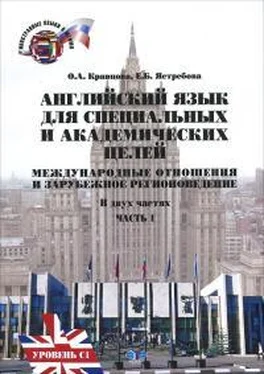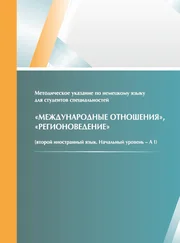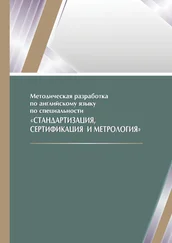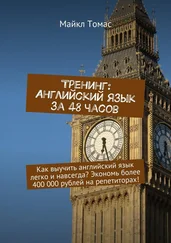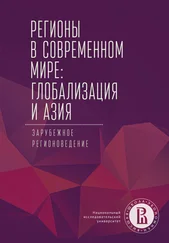In short, what the British Empire proved is that empire is a form of international government that can work — and not just for the benefit of the ruling power. It sought to globalise not just an economic but a legal and ultimately a political system too.
Look more closely at the countries/regions you may be studying and say whether the author's claims are, in fact, true. Supply facts to support your view.
LISTENING 1
Richard Gott on the legacy of the British Empire http://www.youtube.com/watch?v=_KvR0pTZvGQ&index=4&list=PL6D312E28AF131F80
VOCABULARY
Slaughter — to kill (people or animals) in a cruel or violent way, typically in large numbers Indigenous — native
Conscript (army) (adj) — enrolled compulsorily, drafted
To put down — to use force to stop a protest or an attempt by people to take power away from a government or leader
Subject (peoples) (adj) — being under the power or sovereignty of a ruler, government Proselytize — to induce someone to convert to one's faith
Straitjacket — something that limits someone's freedom to do something
PRE-VIEWING
Before watching the video suggest the Russian equivalents for the words above. What do you expect the speaker's position on the legacy of the British Empire to be?
VIEWING
While watching the video put down the names of the former British colonies the speaker mentions. In what context does he mention them?
Unit I. UK: from Empire to Democracy
POST VIEWING QUESTIONS
1. What, in Richard Gott's opinion, should the British Empire be blamed for?
Unit I. UK: from Empire to Democracy
2. In what ways was the British Empire violent?
3. What facts and statistics does Richard Gott support his arguments with?
Speak Up
DISCUSSION
Compare Richard Gott's and Niall Ferguson's (the Lead-in texts) views on the legacy of the British Empire. Is either of them unbiased? Which of them, in your opinion, makes a more compelling case?
READING 1
PRE-READING QUESTIONS
1. How would you define a democracy?
2. What are the types of democratic government in the modern world?
3. What are the main features of Britain's democracy?
4. Based on the title, do you expect the article to focus on the strengths or deficiencies of Britain's democracy?
Skim the text to decide whether you guessed correctly.
HOW GOOD A DEMOCRACY IS BRITAIN?
Professor Stein Ringen University of Oxford February 2007
The answer to this question is: not very good! Of course Britain is a democracy and a solid one, but there are many solid democracies and in this family British democracy is of only mediocre quality.
In my book What Democracy Is For I rank twenty-five of the most respected democracies in the world according to their quality on a scale from 8 (high quality) to 0 (low quality). In that ranking, Britain is on level 3. The best quality of democracy is found in some of the smaller countries with political cultures of egalitarianism, such as in Scandinavia (Norway and Sweden are on level 8 and Iceland on level 7). In Europe, Italy ranks the lowest, on level 0, and France and Germany are on level 3 and 4 respectively. The two great model democracies, those of the British Westminster model and of the United States with its pioneering democratic constitution are both in the bottom range of the ranking.
This is not where British democracy should stand or be expected to stand. The Westminster Model has very much going for it. It is embedded in an ancient and firm culture of liberty. It has evolved organically out of British history and experience and was never invented or imposed. Parliament is a model of careful and pragmatic deliberation. The press is robustly free and radio and television of the best anywhere, including in political scrutiny. Governance is stable, effective and by and large honest.
We should therefore expect British democracy to compare favourably with democracy anywhere else. In fact, however, it does not. Among the world's solid democracies, Britain compares unfavourably. In spite of all it has going for it, it turns out to compare badly in democratic quality.
Democratic deficit in Britain
My concern here is neither with non-democracy nor with weak and second-rate democracies. I am interested in the solidly established democracies and with differences in quality within this exclusive family. I can therefore take some things for granted that I do not have to bring into my comparisons, principally that civil and political rights are established. Even in this the solid democracies are not fully equal but the differences are marginal. In Britain these rights are certainly enshrined in the political and social order and there is no need to question the system on this account. That is very much part of what British democracy has going for it.
However, freedom depends on more than civil and politic rights. It is now widely recognised in political philosophy that values such as freedom and justice rest not exclusively on rights but also on the means to make effective use of rights. For freedom, rights are basic but in addition the individual needs to be in command of a modicum of physical and human capital to be able to live as the master of his or her life. The protection of freedom, then, is a complicated matter of good government. Citizens depend on governance for the effective protection of liberty and rights, for the regulation of economic and social life for equality of opportunity, and for protection against at least extreme deprivations in the resources of freedom. While in all solid democracies citizens enjoy basic civil and political rights, there is a great deal of difference between them in the effectiveness of governance measured against the modern understanding of freedom.
Now back to Britain and the experience of the Britons in the delivery of security of resources. British democracy displayed a burst of energy in the aftermath of the Second World War. The British people had fought through the war together. An idea of social justice had emerged which came to be seen, at least in part, to be what the war was fought for. This idea was articulated in particular in the Beveridge Report on social security. It was an idea of universal social protection, and idea about extending to everyone the protection it is the purpose of democracy to deliver. This idea was put into effect in the great reforms of the late 1940s: family allowance, social security, income support and above all the National Health Service. Here was a democracy performing at its best. In the NHS, that was displayed magnificently. Health care in Britain pre-NHS was a shambles. There were areas where it was excellent: good, free and universally available. But about half of the population did not have access to a family doctor and the poor mostly had to pay for health care.
With the NHS the government cut through the rot, nationalised the whole system of hospitals, brought all General Practitioners into the national service, and abolished inequality by giving everyone the access the privileged had had previously. In hindsight, this was an astonishing achievement, and an astonishingly democratic one.
However, if we look more carefully at those reforms and how they evolved, we find that British democracy was not able to sustain that once-in-a-lifetime democratic burst.
First, the NHS was never able to deliver what was promised. It immediately ran into deep financial problems and has ever since been cash strapped. By the end of the century, the effects of accumulated underinvestments were visible in poor standards, inefficiency, low morale within the service and low confidence in the population. British democracy proved unable to maintain its own creation. It is possible that the NHS is presently being revitalised with new investments, but the jury is still out on this and I for one remain sceptical.
Читать дальше
